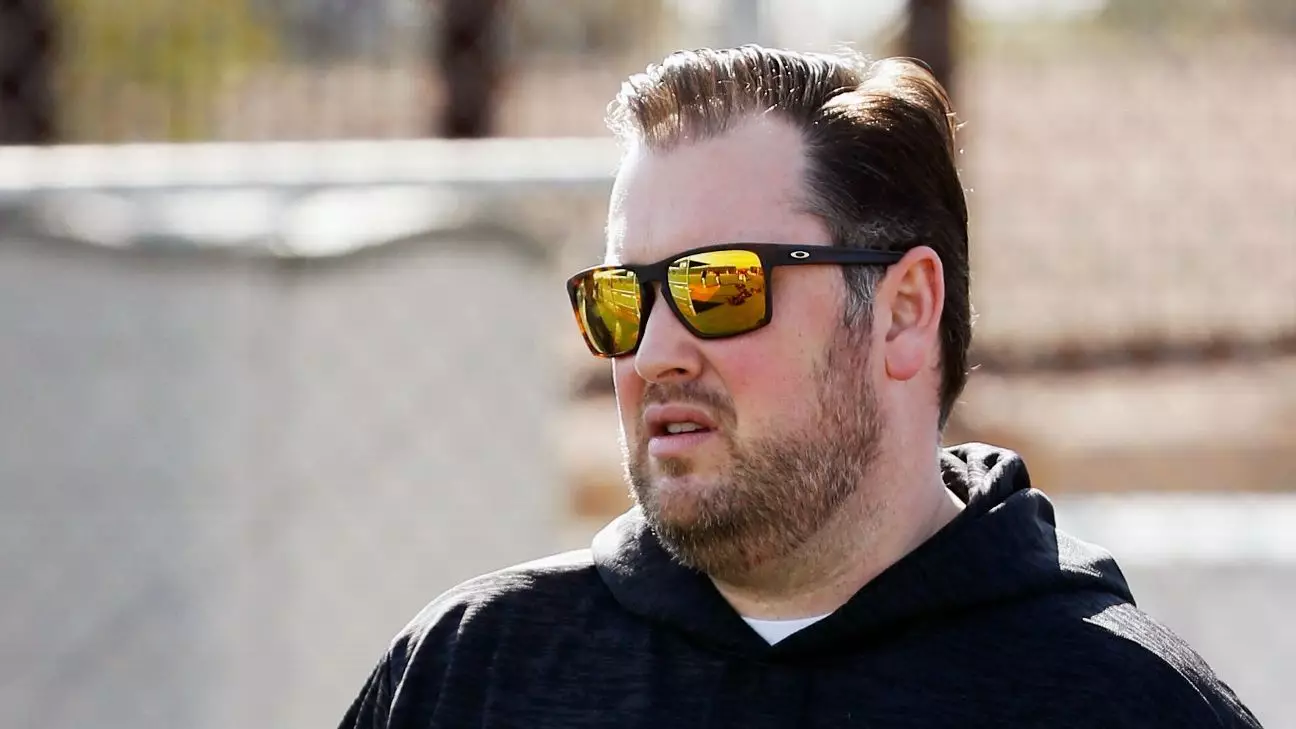In the world of major league baseball, the intersection of personal conduct and professional responsibilities often becomes a focal point of discussion, particularly when issues of harassment or misconduct arise. Jared Porter’s recent public acknowledgment of his inappropriate actions serves as a stark reminder of the weight that accountability carries, not just for individual careers, but also for the organizations that employ them. His journey, marked by a brief tenure as the New York Mets’ general manager and an equally swift downfall, reflects broader societal concerns regarding workplace behavior and the essential conversations surrounding it.
Porter’s appointment by the New York Mets in December 2020 followed a promising career trajectory within MLB, having previously served as an executive for the Chicago Cubs and the Arizona Diamondbacks. However, just 38 days into his new role, Porter was dismissed after ESPN reported his sending of sexually explicit texts and images to a female reporter back in 2016. This event laid bare not only his lapse in judgment but also shone a light on the significant repercussions such actions can have within a professional sports context. The gravity of the situation was compounded by the fact that the hiring and the subsequent fallout occurred during a time of global unrest caused by the COVID-19 pandemic—an element that contributed to Porter never having a formal introduction to Mets owner Steve Cohen.
Porter’s candid remarks during his appearance on the “Baseball Isn’t Boring” podcast reveal a narrative underscored by regret and a desire for accountability. He expressed understanding of the Mets’ decision to terminate his contract, acknowledging the fear and shame he felt as the news broke. The act of sending those messages, as Porter noted, was a conscious choice he made, revealing a significant lack of boundaries that ultimately harmed both him and the organization he represented. His admission serves as a crucial reminder that personal accountability is foundational, not only in the realm of sports but in any professional setting.
The psychological fallout from such public scrutiny can be devastating. Porter shared an intimate look at his mental health journey post-firing, describing his quick transition from a prominent sports executive to a participant in an inpatient mental health program. His experiences resonate on a human level, illustrating the challenges many face when confronted with the consequences of their actions. Facing a situation where his personal choices had led him to a crisis of identity, he spent a week at a facility grappling with issues of emotional trauma and addiction, dragging with him the ramifications of leadership failure. His commitment to outpatient treatment after that week signifies the seriousness with which he approached his healing process.
Despite the hardships associated with his downfall, Porter emphasized his ongoing commitment to mental health, especially among athletes. His involvement in establishing a company named Blend aims to assist youth, collegiate, and professional athletes in developing mental health skills, showcasing a desire to utilize his experience as a platform for education and support. This pivot from personal turmoil to advocacy highlights a fundamental shift in perspective, aiming to contribute positively to forthcoming generations in sports.
Jared Porter’s journey from rising star to cautionary tale underscores the imperative nature of ethical behavior in professional realms, especially in sports. His story compels not only individuals but entire organizations to reflect on their standards of conduct and the frameworks in place to support accountability. In an era where mental health and personal accountability are of utmost importance, Porter’s narrative encourages discussions that transcend the boundaries of baseball, resonating across various industries and societal structures.


Leave a Reply